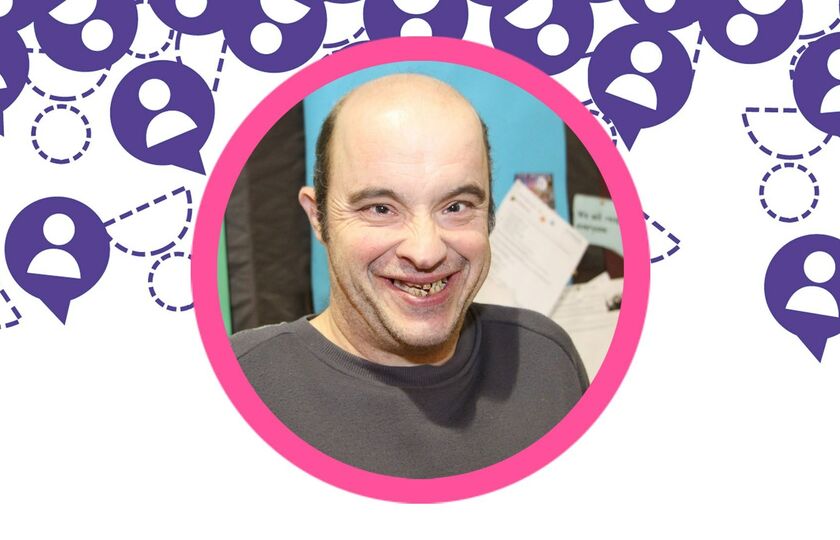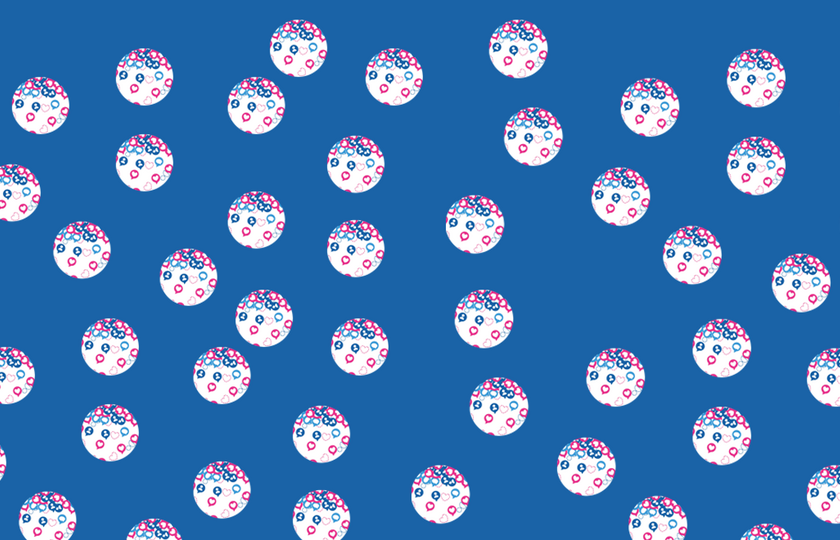Moseley, R. L., Druce, T., & Turner-Cobb, J. M. (2020). ‘When my autism broke’: A qualitative study spotlighting autistic voices on menopause. Autism, 24(6), 1423-1437. Accessible version here.
Supported Loving toolkit
Supporting autistic people through menopause

Menopause, like puberty, is one of several critical periods in development for women and people with ovaries, driven by changes in hormonal brain systems.
This section is about supporting autistic people who do not have learning disabilities. There is a separate toolkit page on menopause and learning disability. Autism and learning disability can co-occur, so both sections will be relevant for some people.
At these sensitive points, significant changes occur in physical appearance, reproductive ability, emotional functioning, cognitive processes, and social development. The brain’s changing hormonal systems during menopause impact the mind and body, producing challenging symptoms.
Menopause is a transition spanning several years. Symptoms begin in the time before periods stop completely (a phase called perimenopause) and can keep going for some time after the person has ‘reached’ or ‘passed’ menopause (ie when they have had 12 months in a row without a period). When we talk about ‘menopause’, we’re referring to this whole transition, including both perimenopause and the time after menopause.
Research suggests that autistic people may be particularly sensitive to hormonal fluctuations. During menopause, some experience extreme anxiety, depression, self-injury and suicidality. Emotions may become more overwhelming. Sensory issues often intensify, and new sensitivities may emerge. Everyday tasks can become impossible. Not everyone struggles – some autistic people have an easy menopause, too.
Because many older autistic people are undiagnosed (particularly those assigned female at birth), some don’t know they’re autistic when they enter menopause. This can be bewildering, since they may not understand why it’s so difficult. It also makes it harder to get support.
Legislation and guidance
The Autism Act (2009) required the government to publish a strategy for supporting autistic adults; progress has been slow. The rights and needs of autistic people are supported by the Health and Safety at Work Act (1974), Human Rights Act (1988), Mental Capacity Act (2005), UN Convention on the Rights of Persons With Disabilities, Equality Act (2010), and Care Act (2014). However, they are frequently inappropriately detained, mistreated, or excluded from services. The Core Capabilities Framework: Autism (2019) Skills for Health sets out what health and social care staff need to know, and the Health and Care Act (2022) requires all CQC-registered care providers to ensure that staff have some level of autism training.
There is no guidance or legislation about menopause and neurodivergence. However, menopause can qualify as a disability under the Equality Act if symptoms are long-term and severe. Read more about this here and here.
Watch this webinar where Rose Matthews and Rachel Moseley draw on lived experience and research to talk about menopause from a neurodivergent angle.
What are the most common challenges faced by people in this area?
Menopause can affect every aspect of life; physical and mental health, relationships, communication, employment and identity. For autistic people, who already face challenges, menopause may be particularly difficult. It generally occurs in mid-life, which also often involves additional demands and changes (eg in support networks, as parents age, become ill or die, or children leave home).
Being autistic is associated with poorer health outcomes, including increased risk of suicidality and self-harm. Several conditions commonly co-occur with autism including Ehlers-Danlos Syndrome, Postural Tachycardia Syndrome, gastrointestinal problems and sensory processing differences. Autism also often co-occurs with other neurodivergences (eg ADHD, Dyslexia, Tourette Syndrome). Autistic people face barriers accessing healthcare, and they may lack information about menopause.
The menopausal transition usually takes between four and ten years and involves unpredictability and change, which are especially challenging for autistic people. Anxiety may increase, emotions may become more difficult to regulate, new sensory sensitivities may emerge, and existing sensitivities may intensify. Trauma resulting from past bullying and abuse may surface having previously been suppressed. Menopausal symptoms may be amplified by autism, and autistic traits may be amplified by menopause, creating a ‘perfect storm.’
Although autism is a largely invisible disability, it attracts considerable stigma and prejudice. Autistic people are at increased risk of unemployment, poverty, homelessness and abuse. They often have limited social networks and may become more isolated as they age. Autistic people can also flourish and find fulfilment in later life. Positive aspects of menopause, ageing, and being autistic are all under-researched.
Some autistic people transition through menopause easily, while other people have significant difficulties. In the future it may be possible to predict who is likely to struggle and offer targeted support.
How best to support people to overcome the issues listed above?
- find out about individual communication needs and preferences
- educate yourself about autism and menopause - see links below
- support the person to access online and/or in person support, including from the autistic community.
- encourage self-advocacy but be prepared to advocate for the person if they prefer
- have empathy for how exhausting and overwhelming life can be for an autistic person
- reassure them that the symptoms don’t last forever, and there are treatments. Encourage them to see a doctor, and be prepared to attend with them for support
- consider safeguarding issues (given increased risk of abuse)
- encourage self-care: interests, rest, healthy boundaries, self-compassion. Reassure them that it is not their fault if they’re struggling with this transition
- go at the person’s pace, focusing on their priorities and desired outcomes.
Dos and don’ts regarding support in this topic area
When you support someone autistic during menopause:
Do
- consider the impact of the person’s circumstances, history and environment, mindful of sensory sensitivities and trauma that might trigger distress
- make sure the person has accessible information about autism and menopause, or help make information accessible for them
- help them seek medical advice, accompany them if needed, and advocating for them if they cannot self-advocate
- be mindful of energy levels and plan carefully to avoid exhaustion/overwhelm.
Don’t
- try to change the autistic person - focus on improving their environment instead
- make assumptions about what someone can and cannot do - check with them
- be a bystander - challenge prejudice and discrimination if you witness it
- only focus on problems and challenges - consider strengths and opportunities, too.
Case study
Alex is 42, single, unemployed, and lives in supported housing. She was diagnosed autistic, aged 39, after a psychiatric hospital admission. Alex is struggling to cope with menopause symptoms - unpredictable bleeding makes her anxious about going swimming, so she no longer sees a couple of people she used to meet up with at the leisure centre.
Alex’s parents are elderly and live some distance away. They disapproved of her leaving her husband after her autism diagnosis, so their relationship is strained. Alex desperately wants to have children, and she was heartbroken when a doctor said her symptoms were menopause related.
Support staff have noticed that Alex isn’t taking care of herself. Night sweats are making her existing sleeping problems worse, and she is often tearful. Last week Alex told her keyworker that life “isn’t worth living” and she feels “useless.” Angry outbursts are creating friction with other tenants.
Things to consider
The possibility of suicidal ideation should be explored sensitively with Alex.
Alex may benefit from up-to-date information about menopause, so she knows what treatment and self-help options may help. If her GP practice lacks relevant expertise, she could request referral to a menopause specialist.
Practical advice may ease Alex’s concerns over swimming. Period swimwear is available and water pressure often temporarily stops menstrual flow. Alternative activities at the leisure centre could also be explored to maintain these social connections.
There are online support groups for autistic people experiencing menopause, and YouTube videos, blogs and podcasts provide insights into a range of experiences and coping strategies.
Alex may benefit from therapy to work through her feelings relating to autism, menopause, family relationships, and childlessness, and/or to explore options such as surrogacy, fostering and adoption.
Top tips
- Encourage autistic people to plan for menopause and seek help early on.
- Adjust your communication style and approach to meet an individual’s needs.
- Be well-informed about support options in healthcare, in the community, and at work.
- See autism in terms of differences not deficits, recognising strengths as well as struggles.
This toolkit page was produced by Mx Rose Matthews (https://www.rosematthewsresearch.com) and Dr Rachel Moseley (www.scienceonthespectrum.net)
Resources for staff/ professionals/ people you support
When my autism broke
All about the blokes and the kids
Moseley, R. L., Druce, T., & Turner‐Cobb, J. M. (2021). Autism research is ‘all about the blokes and the kids’: Autistic women breaking the silence on menopause. British Journal of Health Psychology, 26(3), 709-726. Accessible version here.
A perfect storm
Brady, M. J., Jenkins, C. A., Gamble-Turner, J. M., Moseley, R. L., Janse van Rensburg, M., & Matthews, R. J. (2024). “A perfect storm”: Autistic experiences of menopause and midlife. Autism, 28(6), 1405-1418. Accessible version here.
More menopause resources
National organisations
Resources
Autism from Menstruation to Menopause -Dr Aimee Grant, Swansea University
Menopause and autism (henpicked.net)
Queer Menopause -Menopause resources for LGBTQIA+ people
Resources — Menopause Inclusion Collective -A collection of resources for people with different menopause experiences
Black and Menopausal / Women’s Health -Claudia Canavan
Rock My Menopause - Menopause Information -Public-facing campaign of the Primary Care Women’s Health Forum (PCWHF).
Bridging the Silos: Autistic Menopause Study -Carleton University Canada and Bournemouth University, UK





